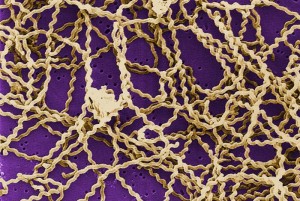The State Secretariat of Health (Sesau) has warned of the increase of leptospirosis cases in Alagoas state in northeastern Brazil, according to a Gazetaweb.com report (computer translated).

Through the first five months of 2017, eight leptospirosis cases have been reported in the small state, nearly 3 times the total in all of 2016.
The concern is centered around the capital city of Maceió, where for the past week, heavy rains have caused flooding.
Leptospirosis is caused by a corkscrew-shaped bacterium called Leptospira interrogans, is often referred to as “rat fever” due to the principal role rats play in spreading the disease (scientists refer this type of animal as a reservoir host). Other animals can also be important reservoirs of the disease.
These animals can spread the disease in their urine, contaminating water, soil, or food. People who live in close contact with domestic animals or wildlife are at higher risk for getting the disease.
People become infected by coming into contact with contaminated urine, water, food, or soil through breaks in the skin, eyes, mouth, or nose. Outbreaks of leptospirosis are usually caused by exposure to contaminated water, such as floodwaters. Person to person transmission is rare.
Infected individuals initially experience fever, severe headache and muscle aches, abdominal pain, and occasionally a skin rash. Patients in the later stages of disease can suffer from jaundice, kidney failure, bleeding from the mouth or nose, bloody urine and can be fatal, especially without proper treatment.
Related:
- Philippines: 12 million people at risk for schistosomiasis, a major neglected tropical disease
- Yemen reports some 2000 cholera cases daily in unprecedented outbreak
- Dengue cases rise in Sri Lanka and flooding could make it worse
- Arkansas: Shigella cases up in the Northeast
- MRSA in Egypt: Summary of few published reports
- Legionnaires’ disease cases up to 60 in Europe: Linked to Dubai travel

